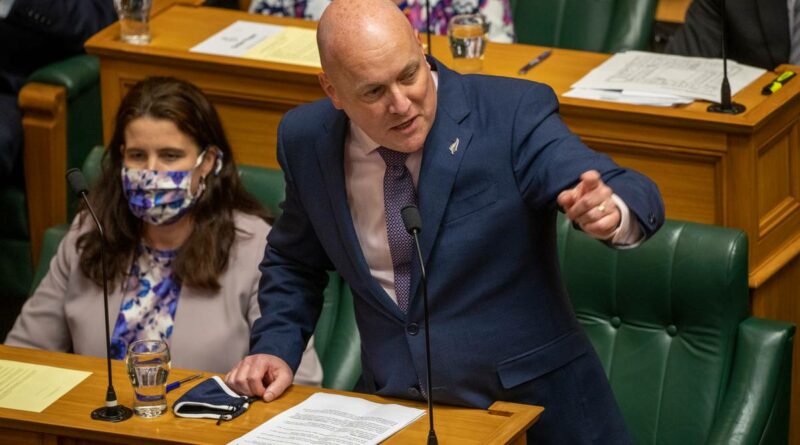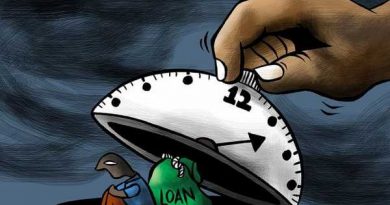Liam Dann: Inflation debate’s about to get bigger than Texas
OPINION:
The political debate about inflation gets ever more intense as interest rates go up and the rising cost of living bites.
But, as with most conflict in this country, it’s reassuring to ground it in the shade of places where politics is really brutal – like Texas.
We’ve had witty barbs thrown across the floor in Parliament. Our Twitter debates suddenly involve economic terms like “the tradeable” and “non-tradeable” sectors.
But, no sir, there ain’t no inflation debate like a Texan inflation debate.
Republican Governor of Texas Greg Abbott was last week accused of actively driving inflation up to hurt the Democrats in upcoming mid-term elections.
Could a Republican politician really be that crazy?
I’ll leave readers to decide (your own views on the question are surely well-formed by now).
What isn’t disputed is that Abbott decided this month was the right time to step up border security and bring in “enhanced” inspection rules for all trucks coming in from Mexico.
That created a huge bottleneck at the border, infuriating Mexican truck drivers, who this week protested with a border blockade of their own.
That’s just added to US supply chain disruption at a time when everyone is getting very, very sick of hearing the words “supply chain disruption”.
Abbott claims he’s been prompted to act by the Biden administration’s lax migration policies.
Democrats, including Texan gubernatorial candidate Beto O’Rourke and White House press secretary Jen Psaki, have called it a “political stunt” to stoke already hot inflation ahead of mid-term elections.
Last week, US consumer price index inflation hit 8.5 per cent – the worst it has been since 1981.
There’s no doubt it is hurting President Joe Biden’s popularity and that in turn rubs off on regional Democratic candidates.
All over the world there are politically tribal debates going on, which involve opposition parties blaming governments for inflation and incumbents saying it’s all on the pandemic and the war in Ukraine.
In Australia and the UK, we see the left blaming the ruling centre-right parties.
I take it as a given that reality falls somewhere between the binary public positions taken by politicians.
I suspect blaming external forces is working better for our government than for Biden, simply because New Zealanders aren’t shy of admitting we’re really very small, with little influence over global forces.
That seems to underpin much of the Right’s thinking on climate change, for example.
National is smart to attack on wasteful government spending where it sees it.
There’s a terrible opportunity cost to poorly deployed taxpayer dollars.
But it’s a big sell for National leader Christopher Luxon to argue that poor spending by Labour is causing inflation, as opposed to more efficient spending he argues he’d deliver.
It may have some impact at the margins, but spending is spending as far as short-term inflation is concerned – as long as it ends up in the economy it is stimulatory.
There’s another risk for National in simplifying the debate this way.
If Labour is to blame for inflation, what then if it peaks and tracks down before next year’s election?
Does Labour get the credit for beating it?
It seems a risky strategic throw of the dice to rely on the highly uncertain timing of global economic cycles.
Economists last week saw green shoots on the supply side of the US inflation data – despite the ugly headline number.
Still, as long as inflation is hitting voters in the pocket they will be grumpy about the economy.
It remains the biggest risk to incumbent governments everywhere – whether they are centre-right or centre-left.
On Thursday, new consumer price data here is probably going to show our inflation rate topping 7 per cent and there’s going to be some dramatic headlines and heated political debate.
As I’ve said before, it is not good enough for the Government to simply point at the rest of the world and shrug its shoulders.
We have to stop inflation from bedding in and outlasting the global price pressure.
We need to push back against where we can, with the tools we can.
We need to keep it in check and moderate it while we wait for some quite exceptional historic circumstances to subside.
Unfortunately, that involves the risky business of removing demand from the domestic economy.
The Reserve Bank is now well underway with the biggest, bluntest tool we have – interest rates.
Governor Adrian Orr seems to be on board with the idea that it’s better to hit sooner than later – while unemployment is low and the is economy still strong
It helps that, in the grand scheme, rates needed to rise anyway. Asset bubbles were overdue for some deflation.
But fiscal constraint is more complicated, as National’s reluctance to talk about spending cuts recognises.
The country is in dire need of investment in crucial infrastructure areas – including health and education.
We don’t need to panic.
Fiscal discipline remains important and we need to keep debating inflation.
But this not 1980 or 1990. Unemployment is low, the Crown accounts are in great shape. Our commodity export prices are at record highs.
We should be wary of paying too much attention to old generals fighting last century’s war.
We can beat inflation without the recessionary pain of the past.
Source: Read Full Article


/cloudfront-ap-southeast-2.images.arcpublishing.com/nzme/F5GAQ3LLDOVCIJ2ZZCZVDQAH7Y.jpg)
